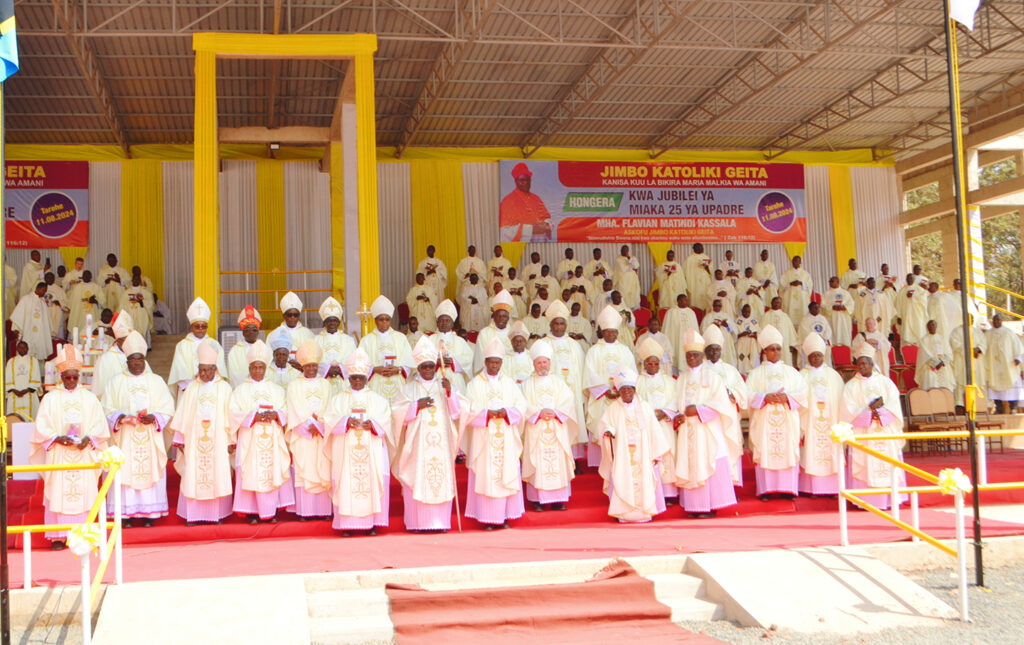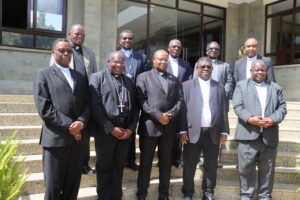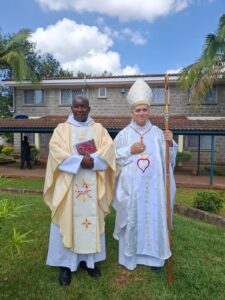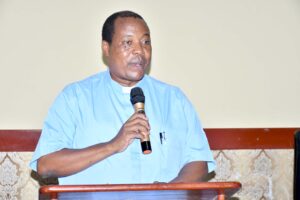TANZANIA: TEC President Insists Tanzania Government Must Stop Forcing Maasai Out of Ngorongoro

Sarah Pelaji
The government has been requested to treat fairly the citizens of Ngorongoro in the Manyara region by providing them with all basic human and democratic rights, their participating in voting in the Local Government Elections which are expected to be held in November this year and the General Elections next year.
The opinion was given by the President of Tanzania Episcopal Conference (TEC), Rt. Rev. Wolfgang Pisa OFM-Cap, while giving a congratulatory speech at the Jubilee Celebration of 25 Years of Priesthood for the Bishop of Mbulu Catholic Diocese, Rt Rev. Anthony Lagwen held on August 22 this year.
The Ngorongoro Conservation Area in northern Tanzania is a World Heritage Site managed by the Tanzanian government. For centuries, the Maasai tribe has lived in the area side by side with wild animals.
In 2022, the government of Tanzania launched a program to encourage the voluntary relocation of the Maasai tribe from the conservation area to Msomera, a town about 600 kilometers (370 miles) away.
However, what the government called a voluntary relocation plan was far from voluntary, for after relocation, the Masai started complaining about how they are failing to adapt to the new culture.
Those who refused to move from Ngorongoro are experiencing inhuman treatment. In August 18, 2024, the Maasai community in Ngorongoro organized a significant peaceful protest along the Ngorongoro-Serengeti highway, demanding that the Tanzanian government recognize and uphold their fundamental rights.
The protest emerged after years of grievances related to restricted access to social services, physical harassment, and violations of land rights. The Maasai have faced increasing pressures, including denial of voter registration and forced relocation with special permits to access their ancestral land.
The community’s frustration reached a boiling point as they set up roadblocks on major saying that, for far too long, their voices have been silenced, and their rights have been trampled on.
The Maasai are calling for a meaningful dialogue with authorities to address their grievances and are urging the public to support their fight for justice.
Regarding the issue of the protection of the Masai tribe in Ngorongoro, the President of TEC said that the government should respect the basis of good governance, transparence, truth and peace and justice.
The country’s assets are owned by the people themselves and the government is the manager, so the people should be respected, listened to and not pressured to implement some things and when they show their position to refuse, the government is denying basic services, including their democratic duty to vote, which he has argued is unacceptable for a country that follows the principles of good governance.
Bishop Pisa also cautioned the defense and security agencies not to beat the people; instead, they should realize that they are there to protect them and not otherwise, while realizing that the people are human beings and not donkeys, so they need to be respected.
He said good governance is a legitimate way of justice and responsibility and it comes from the people themselves. On what is happening in Ngorongoro, the government should listen to the people, agreeing to sit together at the table instead of forcing them to move and denying them services.
“There is no truth that the people are moving voluntarily, but they are being forced and they are raising their voices about the denial of rights… good governance is a legitimate way to be responsible and good governance comes from the people themselves… the government should sit at the same table with the people of Ngorongoro, don’t force them to move,” he said.


